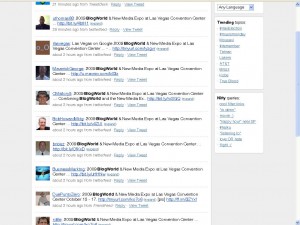 ...
...
Faces
of Africa:
The who's who of Africa Travel, Trade and
Tourism. Testimonials
prove that we have heeded President Kikwete's
request by providing positive publicity on Africa
for 15 years. The results are showing up in many
measurable ways.
Continued Africa
Travel and Nature
Library:
How our outstanding combination of Marketing, Media
and Learning Resources will beneifit from emerging
technology and global reach. About
Us:
Editor of Africa Travel Magazine and Air Highways -
Open Skies Magazine interviewed. “For my parents, paying off the
mortgage was the big deal,” said Petre. “Now, we
are trying to balance the reality of being
financially responsible in our retirement and
senior years but still enjoying our lives as
long as we’re healthy and able to move on. Petre advises senior clients to “think beyond
the traditional.” “If they are going to do it
[seek experiences], they should do it so it’s
truly special,” she added. “They also do not consider themselves old –
they are all still 39, (Jack Benny’s perennial
age, and determined to stick with that number
until they die.” Escorted tours also
continue to be popular. John Schmitt, vice president and director of
sales and marketing for Superior and Frankenmuth
Travel Services, said seniors are expanding
their horizons even within a traditional
context. The agencies have several offices in
Michigan. B L O G W O R
L D
A GOOD BLOG IS A TWEET FOREVER
Social media could destroy the mystery of Africa
Social Media could destroy the
mystery of Africa, but specialists will thrive as a result
according to a panel of senior African tourism businesses at
the latest World Travel Market Club Think Tank, which took
place Tuesday, July 10. Senior buyers with responsibility for Africa met in
central London this week under Chatham House rules, ensuring
that all guests’ comments were unattributed. Tour operators,
agents, sports tourism, and online businesses were
represented.A recurring point was that technology is playing
a disruptive role in the African inbound market with more
suppliers considering direct sales. Travelers have access to
a wealth of information, putting pressure on specialist tour
operators and agents to offer truly personalized service and
product, at a competitive price. One up-market operator
explained that the vast majority of new business referrals
for its business were sourced online, with a big investment
in natural and paid search marketing delivering top-end
clients. The full impact of social media will come in two or
three years, it was said. The “mystery of Africa” is under
threat but the specialists insisted that this would work in
their favor as experience of the product was vital in
converting leads. Opinions were divided over the
commoditization of Africa, based on the possible impact of
new low-cost carriers. Travelers would find it easier to
dynamically package a trip to Africa with a better domestic
network, while the luxury operators were looking forward to
moving their high-paying guests around more efficiently.
Elsewhere, concerns were expressed over a reduction in the
number of direct flights between the UK and Africa.
Airlines’ marketing and PR of their African destinations has
a direct benefit to the entire region and its brand. UK
airlines could lose out as Gulf-based carriers add capacity
to Africa. Some guests noted that they are marketing
stopovers at their hubs to create packages to Africa. Reed
Travel Exhibitions Chairman World Travel Market Fiona
Jeffery, said: “The first Think Tank dedicated to Africa
gave us an even deeper insight into the needs of buyers and
suppliers. “The specifics of Africa as an inbound
destination are many, and we will ensure that WTM 2012’s
Africa program reflects global and local trends.”
Independent analysis of exhibitors in the Africa region at
WTM 2011 found that contracts signed on site or resulting
from follow-up meetings accounted for business worth £152m.
Source: wtmlondon.com. Food and beverages are an essential part of human
life and of one’s lifestyle in general. It is also
one of the main aspects which, when added up, form
what is perceived as a region or country’s local
culture.

EDITOR'S BLOGS
Call
of the Wild:
Why our editorial team looks forward to spring and
another Africa - hosted ATA Congress.
Googled
us Lately?
by
Jerry W. Bird  President
Kikwete of Tanzania gave the world a timely message
when he said,"The Western media needs to focus
more on success stories in Africa. We are doing so
many good things out here which do not get enough
publicity."
President
Kikwete of Tanzania gave the world a timely message
when he said,"The Western media needs to focus
more on success stories in Africa. We are doing so
many good things out here which do not get enough
publicity."
Travel agents are seeing much the same thing
including a preference for more active
vacations, for sharing experiences with family,
and for using technology to make that sharing
easy.
Experiences wanted
“This is the first generation to really
prioritize travel,” said Colleen Petre, a travel
consultant with Cadence Travel in La Jolla,
Calif.
“I just had one of my 60-something clients
return from a trip to the Galapagos,” recalled
Kate Ficke, an agent in Huntley, Ill. “I have to
agree with the fact that seniors do want
experiences and are for the most part willing to
pay for the comfort while getting into the
‘wild.’
“People don’t want to read about these things,
they want to do it,” said Alice Steel, owner of
Travel Junction, Ambridge, Pa. “If they go to
Italy they want to take cooking classes. And
tour operators now stay in one city or region
for days so travelers can really get to know
them. “
Not every senior, however, is going scuba diving
and mountain climbing. Many are looking for more
traditional vacations – but with a twist, agents
said.
Many seniors also want what they have always
wanted, and in many cases that means cruising,
according to Magda Granda, a travel consultant
with Wyllys Professional Travel in Coral Gables,
Fla., an Ensemble agency.
“There are fewer travel and luggage hassles and
many prefer to stay away from having to fly
somewhere although some are flying to Europe to
get on a ship,” she said.
“In the past, they might fly to Europe, take a
tour and fly home,” he said. “Now they usually
want a pre- and post-program so they can go
beyond what the tour offers.”
And the classic motorcoach tour remains a
staple, Schmitt added.
But, added Schmitt, “Clients are a lot more
active even on these tours. We do a tour that
includes a walk across the Mackinac Bridge,
which is five miles long. Years ago, we would
not have people doing that and now we do.”
Agents agree that seniors want to either travel
with family members or share their experiences
via social media.
While seniors are frequently eager to celebrate
a significant birthday or anniversary, they
might also want to celebrate the Sweet 16 of a
grandchild, for instance, said Granda. “Instead
of a gift, they will all travel together and
it’s much more memorable.”
Schmitt pointed out that for a lot of seniors,
“Travel is the only time they will get to see
their children and grandchildren.”
Tech trends
While seniors may not spend all their time on
their electronic devices, they see the value of
sharing via social media.
“Many seniors are as tied to their phones as
their grandchildren because that is the only way
they can communicate with their grandchildren,”
said Ficke.
“And now so many are still working – even if
only part-time – and they need to be kept in the
loop of what’s going on.”
New media. If you are currently blogging, vlogging,
podcasting, producing some other form of new media
content, thinking about joining the exciting
industry of new media or just want to know what
this whole blogging phenomena is all about then you
need to be at BlogWorld.
By Rick
Lots of my new media friends like to say the traditional press release is dead.
They are dead
wrong.
Some of them even like to say blogging is dead.

By Martin Hatchuel
So in the wake of South African Tourism’s Travel Bloggers
conference, it seems this is officially the social Indaba.
And that’s the best news since forever – LOL! – because
something like 2,2 billion people are now on line, and, as
anyone who’s in our industry knows, international arrivals
have topped the one billion mark.
And because the logical connection is that that billion is
most likely to fit into the 2,2 billion demographic, too.
But wait - Social Indaba?
Indeed: because we’re blogging, tweeting, Facebooking,
YouTubing, Pinteresting, Foursquaring like we’ve never done
before...
The future has arrived, and it’s the social web, and that’s
scary because it means that word of mouth has gone global –
which means that your brand no longer belongs to you: it
belongs to your followers, and to the people who like you,
and to the people who pin you, and to the people who share
you.
This might scare you – but rather, it ought to excite you.
According to Martin Wiest, Chief Executive Officer of
Tourvest Destination Marketing (TDM), today’s conditions
bear little resemblance to earlier times.
Wiest reflects on his 25-year journey with the group,
which commenced at Welcome Tourism Services. He recalls:
“When I joined in 1987 as a tour guide, most of our
bookings were received by mail and we responded
likewise. Considering international postal services at
that time, a period of three to four weeks passed before
a booking was confirmed.
“The height of technology at that time was the telex
machine. When fax machines came into the office in 1990,
they were greeted with great excitement as some kind of
magical development. Our tours up to the Eastern
Transvaal, as Mpumalanga was then termed, mostly stopped
at the Protea Hazyview Hotel. The rooming lists would be
sent up by road a week ahead, with the previous tour
group.”
Wiest remembers an occasion where phone lines were down
at the Kruger National Park’s Orpen Gate, a problem
overcome by some ingenious connecting of wires on a
telephone pole.
“Fast forward 25 years, and nobody knows what a telex
looked like. Booking confirmations are given in an
average time of under four hours. Clients have an
expectation of continuous contact with suppliers who
have to be reachable at all times. Cell phones and
other high-tech forms of communication have all but
erased response time. The time pressures, perhaps both
alleviated and aggravated by technology, have taken the
working life of the tour operator to immense levels of
stress.”
He says TDM has thus gone to great lengths to mould a
happy working environment, an effort which has earned it
top place in the Inbound Leisure Travel category of
‘Best Company to Work For Survey’, conducted annually by
Deloitte. TDM has claimed this honour for three years
running.
Aside from the obvious publicity, participation in the
survey gives TDM the opportunity to gauge its levels of
staff satisfaction. The accolade assists in attracting
new employees of a high calibre and keeping the existing
workforce content.
The company’s efforts to upgrade staff proficiencies
have proved significant in securing its ‘happy space’
policy. An in-house learnership programme not only
advances on-the-job skills, but also life skills. Staff
further benefit from an internal values campaign.
“We highlight transparency in our communication with our
workforce,” he says. “We regularly share information on
the financial performance of the group, taking the view
that our staff can only follow us if they know where we
are going.”
According to Wiest, achieving a happy place of work is
far more than a clichéd company goal, but requires the
input of effort, programmes and structures. The end
result is evident to clients and builds their confidence
in dealing with TDM.
And it’s not new, either. Not really. To paraphrase Jack
Dorsey, a founder of Twitter: it’s not a new technology
– it’s the global conversation we’ve always longed for.



Pittsburgh, September 19, 2013: Many consumers are
aware that their credit card data may not be secure
and is susceptible to fraud. What many consumers may
not know is Facebook's role in facilitating this
credit card fraud.
The fast-growing epidemic of credit card fraud has
two primary drivers. One is hackers who break into
customer databases and steal credit card numbers and
customer data. The other is employees with access to
credit card numbers and the details of card owners
from retailers such as gas stations, restaurants and
particularly hotels. Airline Information's Managing
Partner, Michael Smith, says about hotels: "Front
line hotel employees can easily access and steal
credit card numbers and your personal details.
Couple this with outdated IT and business processes
related to franchising and it's a toxic mix. Hotel
chains and their franchises often use different
reservations systems, requiring that paper copies of
credit cards be used in many hotel properties. This
is much less secure than the masked electronic
credit card information standard in almost any other
industry. The result is that hotels can be traced as
the source of nearly one third of all credit card
fraud globally, which hits our company’s airline
clients particularly hard, since airline tickets are
a common item purchased with stolen cards."
When credit card numbers are hacked or stolen, they
are then sold online to be used for online purchases
or for making cloned credit cards. Personal data
about the cardholders, widely available on the web
and Facebook, may also then be used by fraudsters,
as credit card criminals are referred to, to assume
the identities of the stolen cardholders.
Facebook is also used for the selling of credit card
data, as well as for sharing information between
fraudsters on how to successfully steal card numbers
and commit identity theft. Jan-Jaap Kramer, CEO of
the Dutch fraud prevention consultancy, FraudGuard,
says: "There are numerous pages on Facebook set up
by criminal rings to facilitate and share
information about credit card fraud. Many of these
pages show all credit card details like CVC code,
expiry code, the PIN code for online payments and
personal data of the cardholder including home
address, date of birth, social security numbers and
more. We have asked Facebook to block these pages,
but it takes no action. The result is greater fraud
losses for consumers and merchants, ruined credit
records and misery trying to sort out fraudulent
transactions."
As an advocate for the airline industry, a primary
victim of credit card fraud from reservations made
with stolen credit cards, Airline Information calls
on Facebook to stop the practice of facilitating the
sharing of fraudulent credit card information via
Facebook pages. We encourage merchants and consumers
to contact Facebook and their government authorities
to have Facebook end this consumer-unfriendly
practice.
ABOUT AIRLINE INFORMATION:
Established in 2005, Airline Information is a leader
and innovator in commercial & financial airline &
travel industry conferences, publications and
consulting. We bring together professionals working
in and with the airline & travel industry for
networking, career advancement and doing business.
AIRLINE INFORMATION PRESS CONTACT:
Christopher Staab
+1 305-328-8598
cstaab@aiglobal.org
www.airlineinformation.org/events

..
